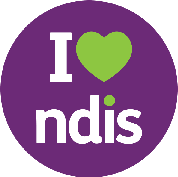Navigating the justice system can be challenging, especially if you or someone you know has a disability. Fortunately, NDIS support for justice-involved participants is designed to continue supporting people with disability even if they enter custody or are on parole, bail or other court orders. In fact, the NDIS explicitly affirms that if you have a disability and you’re involved in the justice system, “you have the same rights as anyone to become or remain an NDIS participant” (NDIS and the Justice System). This means you can apply to join the NDIS or keep your NDIS plan, whether you’re in prison, on community orders, or under a forensic order.
This article explains what “justice-involved” means, what supports the NDIS provides (and what the justice system provides), and how you or your loved one can access NDIS help. For more information on how NDIS support coordination works in general, see our blog post Understanding NDIS Support Coordination: What It Is and Why It Matters.
Your Rights in the Justice System
It’s essential to understand your rights when it comes to NDIS support for justice-involved participants. If you have a disability, you maintain your rights under the NDIS even while involved in the justice system. This means:
- Equal access: You can apply to become an NDIS participant or stay a participant just like anyone else.
- Timely planning: If you’re already a participant, your current plan stays in place while you’re involved with justice. It won’t end just because you’ve been incarcerated or placed under an order.
- Support to apply: If you need to apply while in custody, you should start the process well before your release date. The NDIA may even fast-track applications for people in prison to ensure supports are ready for transition back into the community (NDIS Guidelines on Justice).
Who counts as “justice-involved”? According to NDIS guidelines, being involved in the justice system includes being: in custody (prison, remand, youth detention or secure mental health facility); on remand or awaiting sentencing; on bail, probation or parole; serving a community-based order; or under a forensic order. In short, it covers anyone with court or correctional supervision (Mainstream and Community Supports: Justice).
Knowing this is empowering: if you or someone you support falls into one of these categories, you are entitled to the NDIS supports you would have otherwise received. For example, the NDIS guidelines explicitly state people in custody should apply before their release date so they can access funding to prepare for re-entering the community. This proactive planning is a key pathway to staying supported during and after justice involvement.
Supports in Custody vs. in the Community
One of the most common questions is “What will the NDIS actually fund if I’m in prison, and what does the prison provide?” The answer lies in the law that divides responsibilities between service systems.
In custody, the justice system is responsible for daily care and basic needs. For example, prisons or secure facilities must provide supervision, meals, personal hygiene assistance, disability-related health care, medication for health conditions, mental health treatment, and secure housing as needed. The justice system must also make reasonable adjustments for your disability — like ramps, bathroom aids, Auslan interpreting, or communication tools — so you can fully participate in prison life.
NDIS-funded supports in custody: The NDIS will not duplicate what the justice system already provides. However, the NDIS can fund supports beyond that, if they meet NDIS criteria (i.e. they are disability-related and reasonable). Examples include:
- Assistive technology: If you need a specific device for your disability (like a hearing aid or wheelchair), the NDIS can fund it.
- Capacity-building therapies: Supports that build skills for the future – such as a Psychosocial Recovery Coach, behaviour support services, or therapy – can be funded even while in custody.
- Staff training: The NDIS can pay for training prison staff to support your needs.
- Transition supports: Such as support coordination to plan your reintegration.
These NDIS supports are not automatic – they must meet the reasonable and necessary criteria. Importantly, the justice system still manages risk and safety. That means prison authorities decide how and when any NDIS-funded supports are delivered.
Summary – In Custody:
- Justice system provides: Day-to-day living needs (food, housing, supervision, health, personal care).
- NDIS provides: Disability-specific supports such as assistive devices, therapies, and capacity building.
Supports When You’re Not in Custody
What if you’re involved in the justice system but not currently in custody? In that case, the NDIS funds your disability-related supports in exactly the same way as for any other participant. This includes:
- Supported independent living
- Daily personal care
- Therapy sessions
- Community participation supports
The justice system handles compliance with court-ordered conditions like drug testing or parole checks. However, these must still be made accessible (e.g. plain language, interpreters).
For practical tips on using your plan’s funding effectively, see:
- NDIS Funding in NSW: What You’re Entitled To & How to Use It
- Top NDIS Services You Didn’t Know You Could Access
Summary – Not in Custody:
- Justice system provides: Legal supervision, drug testing, community corrections.
- NDIS provides: Disability supports such as housing, therapies, and capacity building.
Justice Liaison Officers and Support Coordination
To help justice-involved participants, the NDIA has specialised Justice Liaison Officers (JLOs). JLOs work with courts and correctional facilities to help:
- Submit NDIS access requests
- Gather supporting documents
- Arrange planning meetings
- Coordinate transition planning
Once you’re a participant, JLOs help keep your plan active and coordinated.
You may also have a Support Coordinator, like those at Centre of Hope, who helps you:
- Understand and use your plan
- Connect to supports
- Navigate the justice and disability systems together
Learn more:
Planning Your Transition Back to Community
Planning for release is vital. The justice system may help with case coordination. The NDIS can assist with:
- Support coordination for housing or health
- New assistive technology
- Behaviour supports
- Skill-building programs
At Centre of Hope, we offer support tailored to justice-involved individuals. Our referral form is available online, and you can also book an appointment to speak with our team directly.
Frequently Asked Questions
Can I apply to the NDIS if I’m in prison?
Yes. You have the same rights to apply as anyone else. It’s best to apply well before your release date. NDIA staff or JLOs can assist you (Justice System – NDIS Guidelines).
I’m already on parole – do I lose my NDIS plan?
No. Your plan continues while you’re involved in the justice system. You can request a reassessment if your needs change.
What supports does NDIS cover in custody?
The NDIS can fund assistive technology, therapy, staff training, and release planning – but not general prison services like meals or personal care.
Who helps me access supports?
Justice Liaison Officers and Support Coordinators are there to help. You can also get support from advocacy groups or organisations like Centre of Hope.
Take Control: Navigating NDIS Support While Justice-Involved
Being involved in the justice system doesn’t mean losing your right to support. Whether you’re in custody, on bail, or returning to the community, there are NDIS pathways available to support your goals.
At Centre of Hope, we empower participants to navigate NDIS support for justice-involved participants. You can refer someone, book a meeting, or explore our full list of NDIS services.
Read more articles like this on our blog and discover how we can help you or your loved one thrive.








